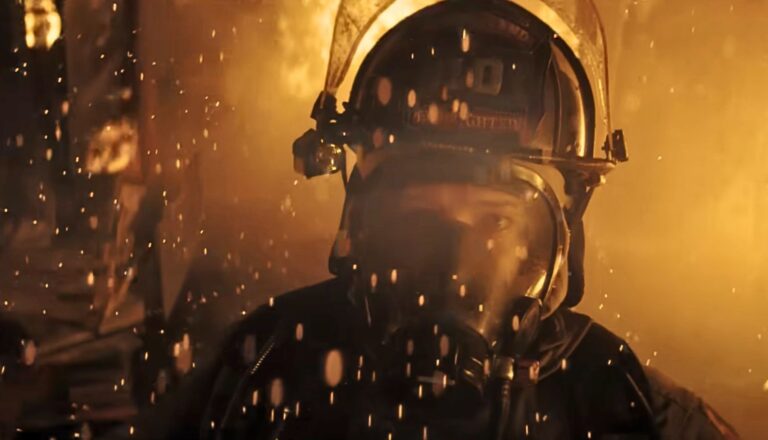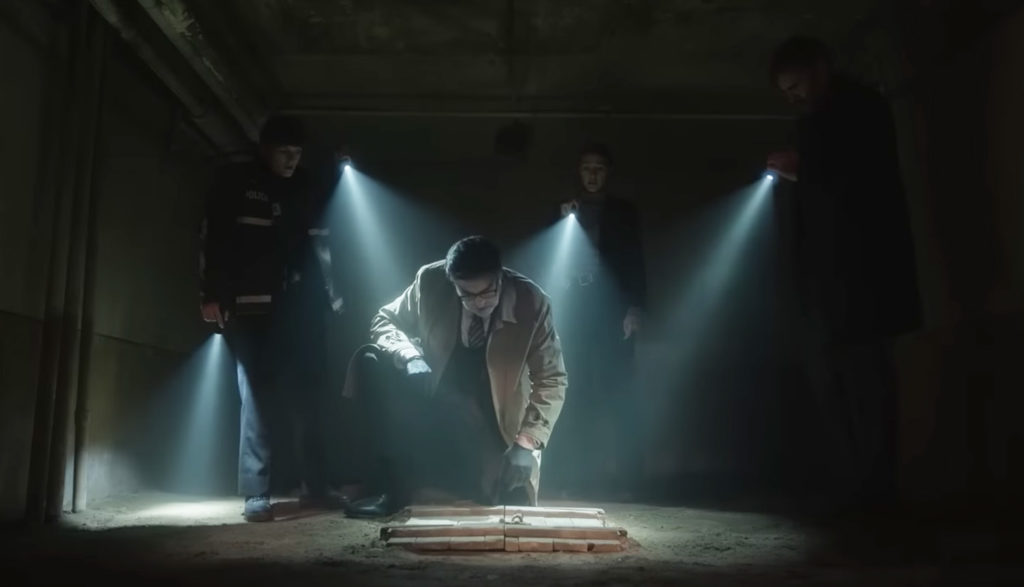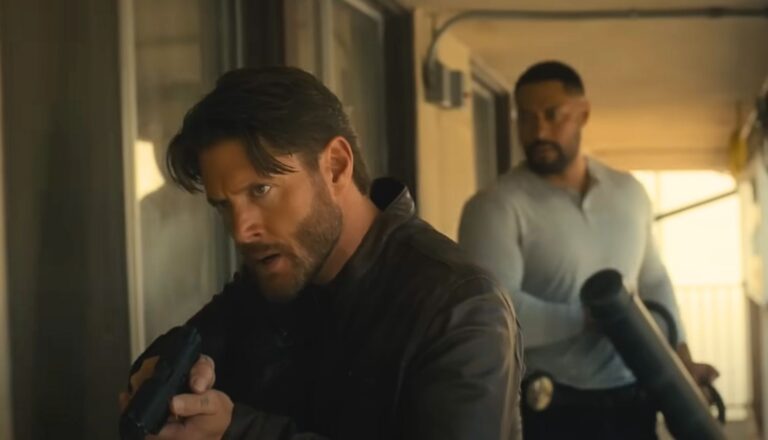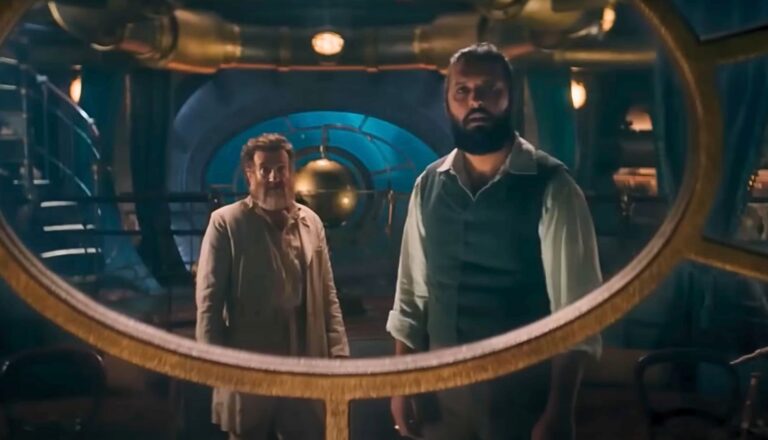
Smoke
Where there’s smoke, there’s going to be fire. And where there’s Apple TV’s ‘Smoke,’ there’s going to be content issues.

Small-town murder has been the darling of TV drama since … well, since forever, really. There’s something about the juxtaposition of a tiny, picturesque community with violent crime that has intrigued audiences for decades. And if Amazon Prime Video’s most recent offering is any indication, that isn’t changing anytime soon.
Based on the series of novels by Louise Penny, Three Pines is a mystery drama following Chief Inspector Armand Gamache, a Montreal detective, as he investigates two different crimes. The first is the disappearance of a young Native American woman, and the second is the unusual death of a woman in the idyllic village of Three Pines, Canada. The former is going largely ignored by the Montreal police, and the latter is largely assumed to have been an accident.
But of course, as anyone who’s ever spent a weekend binging a murder mystery series can tell you, in the world of crime drama, nothing is ever an accident.
Eighteen-year-old Blue Two-Trees has been missing for months, and no one outside of her tribe seems to care. “These people say their loved ones go missing twice,” a news reporter says regarding the Indigenous community. “Once in the real world and once in the police files.”
Only Gamache is interested in investigating the case—that is, until he’s called up to the tiny town of Three Pines to look into the death of self-help writer C.C. de Poitiers. C.C. met her demise after being electrocuted while watching a curling match. What initially seems like a freak accident, however, becomes immensely more complicated as Gamache begins to question members of the community. Turns out, C.C. wasn’t all that popular, and as the layers of this small-town murder begin to peel away, it becomes clear that the question isn’t who would commit this bizarre murder: It’s who wouldn’t.
As with most crime dramas, the mystery of Three Pines brings a bit of baggage with it. Coarse language and sexual themes are an issue here, as well as some violence and disturbing content typical of the genre. On the flip side, this whodunnit isn’t entirely without things to appreciate. Inspector Gamache brings a much-needed change to the hard-boiled detective stereotype. He loves his wife, is gentle with kids, and he’s the first to defend Indigenous protestors and stand up for their rights against his fellow members of the police.
There’s something to be said as well for the somewhat tame route taken by Three Pines, especially in our world of “anything goes” entertainment, where streaming services allow TV to go more explicit than ever. The aforementioned content issues — language, violence, etc.—are still present, but not at the gratuitous level that might be expected from some of its counterparts in the genre.
Of course, much like the citizens of the titular village, Three Pines is far from in the clear. The presence of these content concerns in early episodes is enough to suggest their appearance down the line—potentially in a much more explicit nature.
As the mystery of Three Pines continues to unfold, viewers should be aware of both the good and the bad that come with Inspector Gamache’s investigation, not to mention the potential of higher hurdles to come.
Chief Inspector Armand Gamache is called away from his investigation of a Native American girl’s disappearance to inquire about a writer’s accidental death in the tiny village of Three Pines, Canada.
Three Pines’ annual Boxing Day curling match is going perfectly well, until it isn’t. C.C. de Poitiers, a rich self-help author infamous amongst her community, is electrocuted in her metal chair, causing an abrupt end to the festivities. She shakes violently for a few moments and we see blood on her scorched palms before she falls backward, dead in her seat. The scene isn’t gory or gratuitous, but some viewers may find the incident disturbing.
Mild violence continues to appear throughout the episode. A police officer punches an Indigenous woman during a peaceful protest and tries to arrest her before Gamache intervenes; we later see a resulting red mark on the woman’s cheek. While being questioned by the police, Crie, C.C.’s teenage daughter, picks at the skin around her thumbnail until it bleeds. Gamache hits a blue jay with his car in a dream; the impact is sudden and surprising, but no blood is shown, and the bird soon wakes up and flies away.
C.C. is revealed to have had an affair with a younger photographer, Saul Petrov. We see the two naked in bed together, but they remain under covers and no nudity or intimate activity is shown beyond a kiss. Ruth, an eccentric older woman living in Three Pines, is shown in the bathtub, though we again see no nudity.
Adults drink socially at a Christmas party, and we see a photo of teenagers holding bottles of beer. A youth choir sings Greg Lake’s “I Believe in Father Christmas” at a Christmas Eve service, including the lyric “Hallelujah, Noel, be it heaven or hell/the Christmas we get we deserve.”
The f-word is used eight times over the course of the episode; the s-word is heard five times (once in French and subtitled in English), while h–l and a misuse of God’s name appear once each.


Lauren Cook is serving as a 2021 summer intern for the Parenting and Youth department at Focus on the Family. She is studying film and screenwriting at the University of North Carolina School of the Arts. You can get her talking for hours about anything from Star Wars to her family to how Inception was the best movie of the 2010s. But more than anything, she’s passionate about showing how every form of art in some way reflects the Gospel. Coffee is a close second.

Where there’s smoke, there’s going to be fire. And where there’s Apple TV’s ‘Smoke,’ there’s going to be content issues.

In Prime’s Countdown, Nathan Blythe assembles a task force of misfits to investigate and halt a conspiracy that puts all of Los Angeles in jeopardy.

While none of the elements within this reimagining of Jules Verne’s famous book are particularly gruesome, they can be intense.

Scrublands’ Martin Scarsden is good at uncovering buried secrets, even when the secrets put his own life—and others’—at risk.